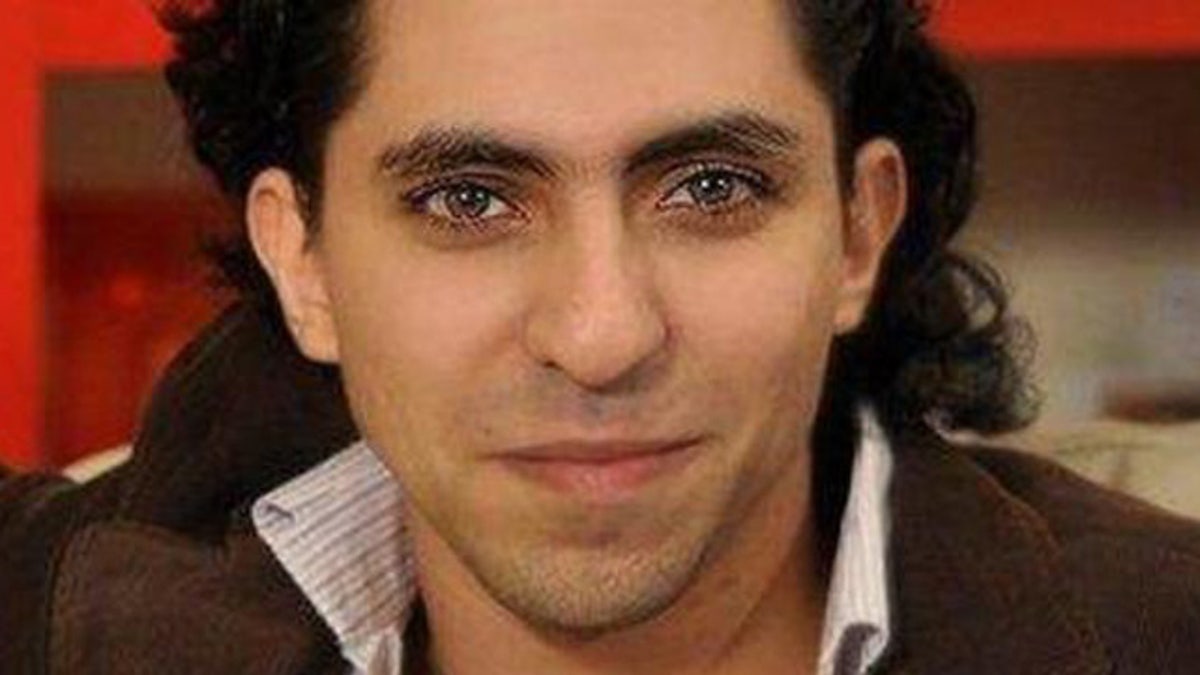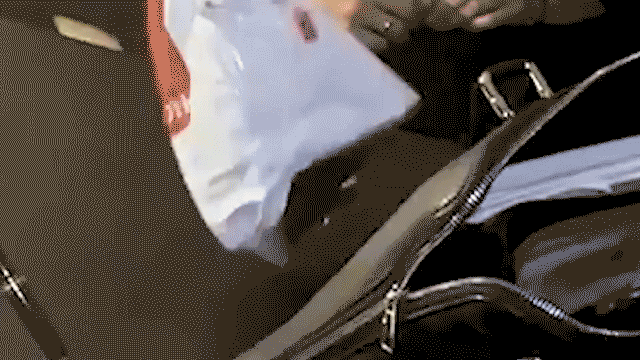
Raif Badawi, a Saudi website founder and blogger. (Amnesty International)
The second of 20 weekly floggings of a Saudi blogger accused of insulting Islam in a case that has drawn international condemnation of the Kingdom's harsh system of justice was postponed on medical grounds, Amnesty International said Friday.
Raif Badawi, who was flogged 50 times in public one week ago, was due to face the same punishment every Friday until he had received 1,000 lashes, followed by 10 years in prison.
Amnesty International said in a statement on its website that Badawi was removed from his jail cell this morning and taken to the prison clinic for a medical check-up. A prison doctor there said the wounds Badawi received from his previous beating had not yet healed and that he would not be able to withstand another round of lashes Friday, according to the human rights group.
The doctor advised that the flogging be postponed until next week, but it remains unclear whether authorities will comply with his recommendation.
Badawi was arrested in 2012 after criticizing Saudi Arabia's powerful clerics on his blog. In 2013, he was cleared of apostasy, which could have carried a death sentence, but sentenced to 1,000 lashes and 10 years in prison.
Last week, Badawi was brought to a public square in Jiddah last week and flogged 50 times.
"Not only does this postponement on health grounds expose the utter brutality of this punishment, it underlines its outrageous inhumanity," Said Boumedouha, Amnesty International’s deputy director for the Middle East and North Africa program, said in a statement Friday.
"The notion that Raif Badawi must be allowed to heal so that he can suffer this cruel punishment again and again is macabre and outrageous. Flogging should not be carried out under any circumstances," Boumedouha said. "Flogging is prohibited under international law along with other forms of corporal punishment."
The punishment of Badawi for criticizing Islam as sparked an international outcry.
The U.N. high commissioner for human rights, Zeid Raad al-Hussein, appealed to the king to halt the public flogging by pardoning Badawi "and to urgently review this type of extraordinarily harsh penalty."
Last week, the U.S. made a rare diplomatic decision to publicly call on Saudi Arabia, an important U.S. ally, to rescind the sentencing, with U.S. State Department spokeswoman Jen Psaki urging Saudi authorities to "cancel this brutal punishment."
"The United States strongly opposes laws, including apostasy laws, that restrict the exercise of these freedoms, and urges all countries to uphold these rights in practice," Psaki said.
Saudi Arabia enforces a strict version of Islamic law and does not tolerate political dissent. It has some of the highest social media usage rates in the region, and has cracked down on domestic online criticism, imposing harsh punishments.
In addition to his sentence, Badawi was ordered to pay a fine of 1 million riyals ($266,000). Following his arrest, his wife and children left the kingdom for Canada.
Zeke Johnson, Amnesty's managing director of individuals at risk program, told FoxNews.com on Thursday that the organization has a petition calling for Badawi's release. Johnson also urged Americans to contact their representatives in Congress, as well as the White House, to press the U.S. government to demand Badawi's freedom.








































